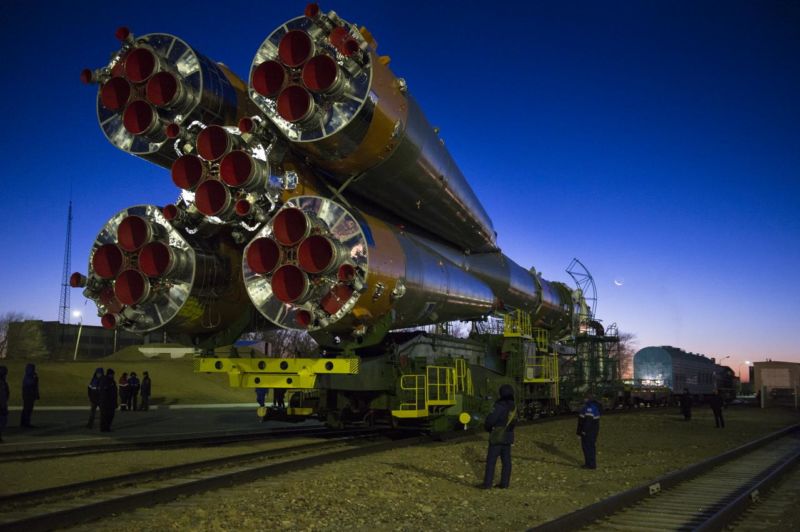
The Russian space program's budget process is not particularly transparent to outsiders, but it does appear likely that Roscosmos will face cuts in the coming years. According to Sputnik, a Russian government-controlled news agency, the Roscosmos state corporation will likely to suffer funding shortages amounting to 150 billion rubles (more than $2 billion) in the next three years, from 2019 to 2021.
The consequences of these cuts could be severe for Russia's much-vaunted launch industry. In particular, the reduced budget could forestall a rocket development project intended to compete with SpaceX's Falcon 9 rocket and a new super-heavy lift booster.
Unnecessary rockets
One expert observer of the Russian space program, Ivan Moiseev, the scientific leader of the Russian Space Policy Institute, says this is the case. Cuts in the Roscosmos budget will make it impossible to develop the new Soyuz-5 medium-lift booster, the Falcon 9 competitor, as well as imperil further development of a heavy-lift variant of the Russian Angara rocket.
"One can say that the current plan for an ultra-heavy booster is unnecessary because there is no payload or mission for it, and even the draft design has already cost a billion (rubles)," Moiseev told the Russian publication Lenta.RU. "Additionally, the development of new boosters is doubtful from a practical perspective, because the number of payloads we (Russia) will be lofting is fairly well known, and it is not growing with any stability."
(A translation of this article, originally published in Russian, was provided to Ars by Robinson Mitchell, a former U.S. Air Force Airborne Cryptologic Language Analyst.)Russia recently completed preliminary design work on the Soyuz-5 rocket, a medium-lift booster, with a first stage powered by RD-171 engines that will burn kerosene fuel. This new efficient booster, Russian officials felt, could replace the existing Soyuz rocket that carries cosmonauts and astronauts into space while competing with SpaceX on price for commercial payloads.
If fully funded, the Soyuz-5 could be ready for service by 2022, but budget cuts will preclude that, Moiseev said. Any delays to the project will probably prove fatal, as SpaceX's Falcon 9 rocket is likely to see diminished costs over time as the company continues to improve the booster's reusability. In other words, even if the Soyuz-5 rocket is competitive on paper with the Falcon 9 now, it is unlikely to be so four years from now.
New leader
As for the heavier lift Angara rocket, Moiseev said there is little need to build the bigger rocket at this time because Russia has no specific payloads for it. "We only need to build the new booster if there is a specific mission to launch something the older boosters aren't capable of lifting," Moiseev said. Indeed, the looming budget cuts suggest that such missions could themselves not be funded at this time.
The biggest space news out of Russia in the last few weeks has been confirmation that former deputy prime minister Dmitry Rogozin, who has been critical of NASA and been sanctioned by the United States, will now head Roscosmos. Very quickly, he will have to confront these budgetary issues and likely make decisions about Russian rocket development. He will need to be creative, as Vladimir Putin has just said, "We need to restore our leadership in space launches."
https://arstechnica.com/science/2018/06/russia-may-lack-the-funds-to-compete-with-spacexs-falcon-9-rocket/Bagikan Berita Ini














0 Response to "Russia may lack the funds to compete with SpaceX's Falcon 9 rocket"
Post a Comment